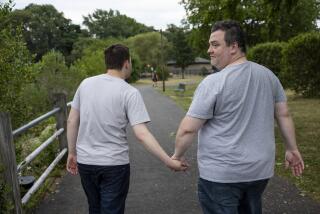Autism Awareness Month: Best places to live if you have autism
April is Autism Awareness Month, and to kick off events, the advocacy group Autism Speaks is releasing results of its first online community survey on livability.
The organization used the data to generate a list of places to live for people with autism, reporting the places most often cited by respondents for best availability of services and resources, including educational offerings and recreational and medical services.
In the top 10 were, in no particular order: New York, Los Angeles, Chicago, Cleveland, Philadelphia, Boston, Northern New Jersey, Minneapolis/St. Paul, Seattle and Milwaukee.
The worst places -- the states generating the most negative responses -- included Texas, Virginia, Tennessee, Ohio, Florida, Michigan and (despite L.A.’s high ranking) California, according to a news release.
Surveys came from 848 “members of the autism community” living in the lower 48 states and the District of Columbia. Seventy-four percent were generally unhappy with the availability of services for autism where they live, while 26% -- 220 people in all -- said they were generally happy.
More than two-thirds of the 628 respondents who were unhappy with their services reported traveling an hour or more on a regular basis to get access to services or resources. Three-quarters were unsatisfied with their access to medical care. More than half said they were happy with educational services their child was offered, but 90% said they did not have access to respite services -- ways to get a break from the sometimes unrelenting work of caring for kids with autism.
Those who reported being happy, in contrast, were mostly satisfied with access to medical care (83%). Only 23% regularly spent an hour or more to get to services or resources, and 95% said they were happy with their kids’ educational services. Still, many -- 75% -- didn’t have access to respite care, either.
Supportive workplaces appeared to be important to satisfaction, Autism Speaks reported. Fifty-five percent of the happy group said their employers had family-friendly policies.
Related: The Los Angeles Times’ Melissa Healy reports on an MIT study about autism and moral judgment. Shari Roan writes that researchers have found a link between flawed synapses and autism. And Rosie Mostel reports on a recent chapter in the ongoing saga of the (unsubstantiated) link between vaccines and autism.
More to Read
Sign up for Essential California
The most important California stories and recommendations in your inbox every morning.
You may occasionally receive promotional content from the Los Angeles Times.











